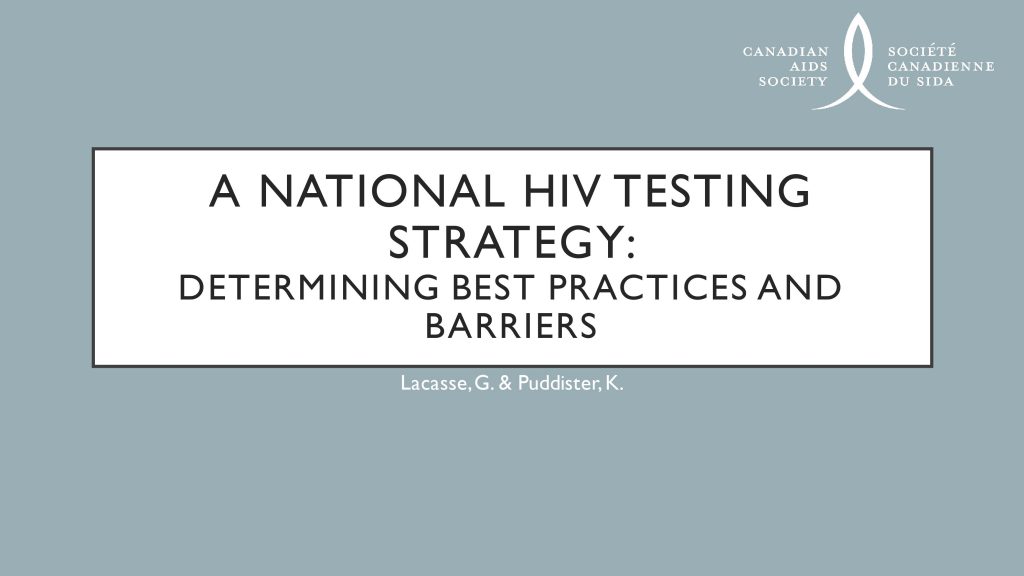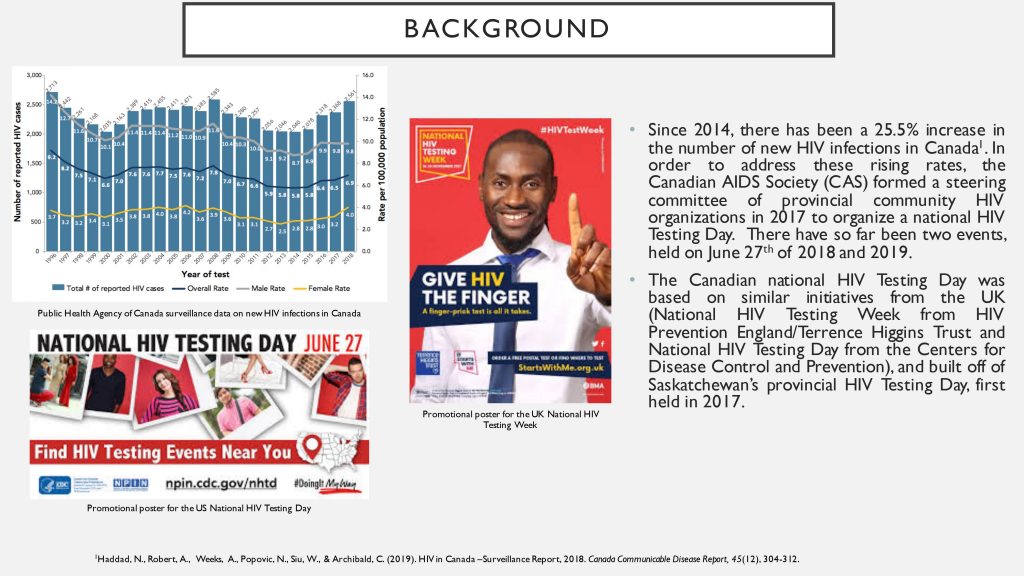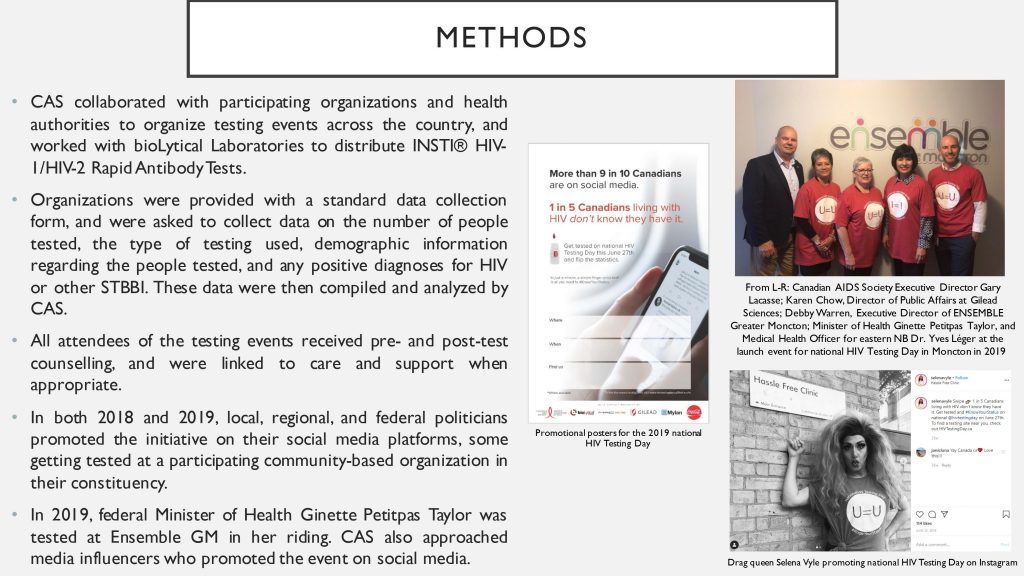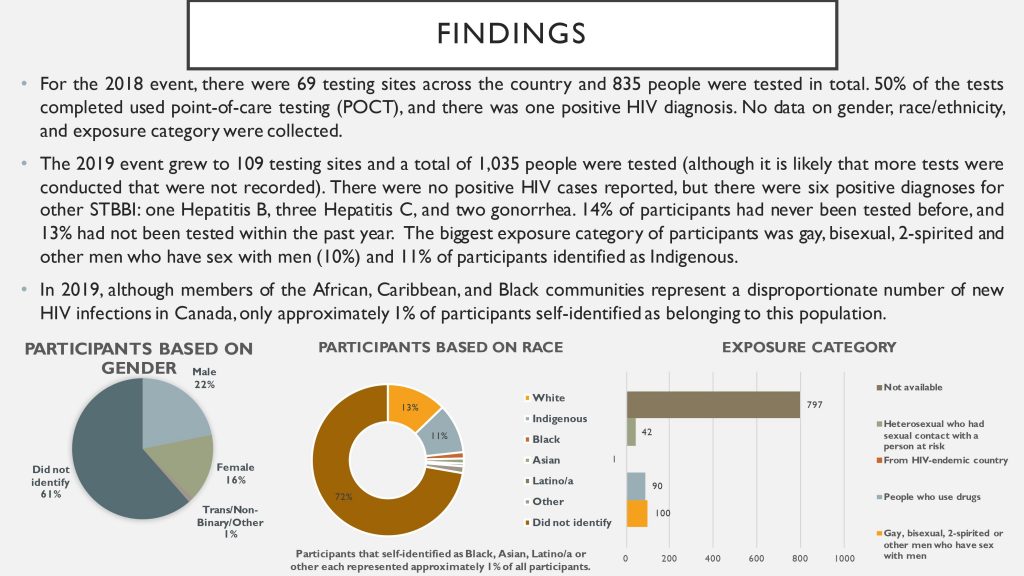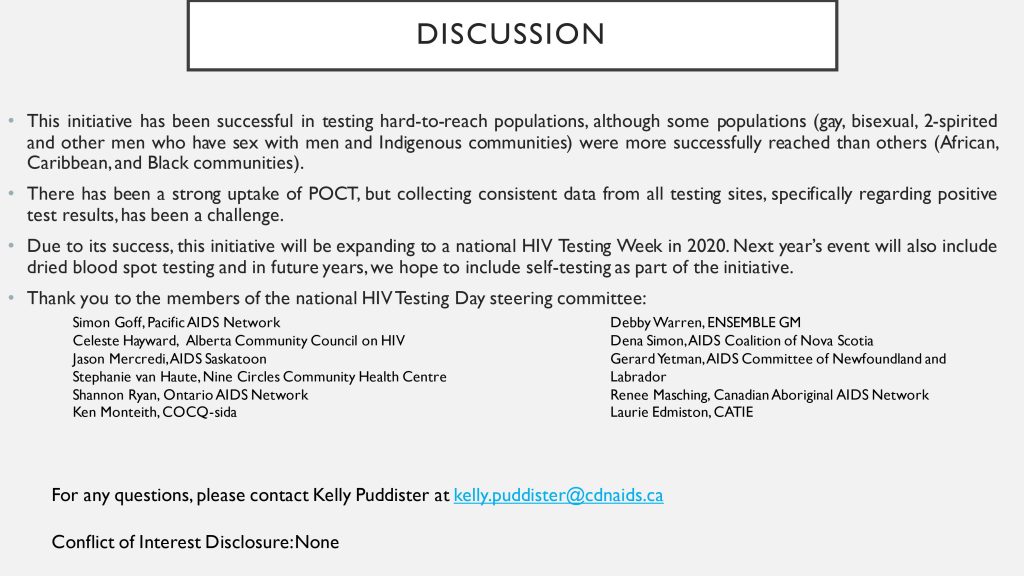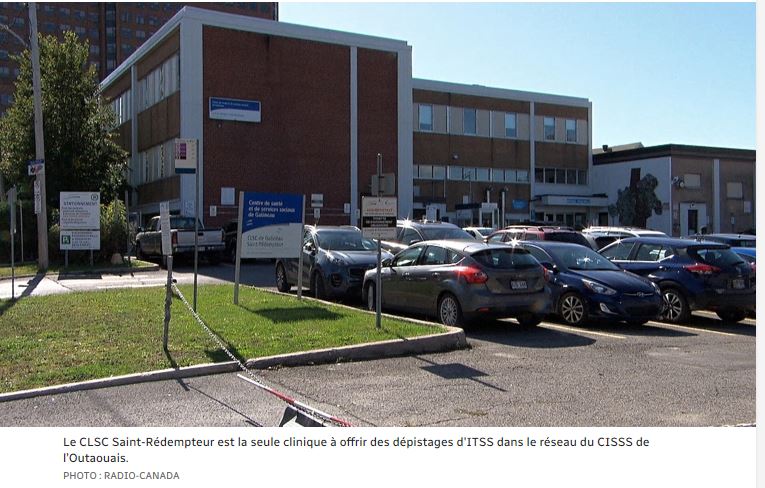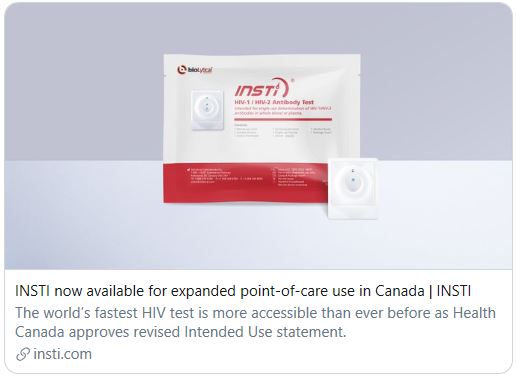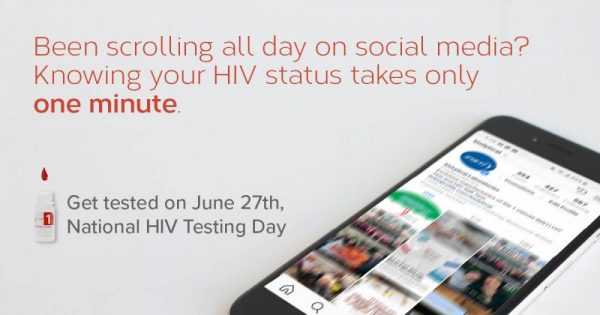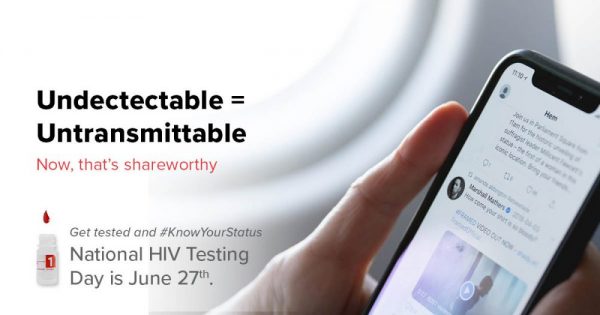


Saint John, November 26th, 2020 – As part of the Canadian AIDS Society’s (CAS) national HIV Testing Week initiative, RECAP and Avenue B hosted an HIV and sexually transmitted and blood-borne infection (STBBI) testing event at AVENUE B (62 Waterloo Street) on Wednesday, November 25, 2020 from 11am-3pm. “The goal of the event was to provide easy access to testing for at-risk populations who are often disproportionately affected by the virus”, said Julie Dingwell, Executive Director of AVENUE B.
National HIV Testing Week aims to reduce the stigma often associated with HIV testing. “Building on the success of last year’s initiative, this event was truly about normalizing HIV testing, increasing Canadians’ capacity to make informed decisions regarding their own sexual health, and decreasing stigma. We are so pleased to collaborate with RECAP and Avenue B to bring point-of-care testing (POCT) and dried blood spot (DBS) testing to New Brunswick”, said Gary Lacasse, Executive Director of CAS.
The theme for Testing Week is #KnowYourStatus. 1 in 7 Canadians living with HIV are unaware that they are HIV-positive, which makes the
possibility of transmitting the virus to others much more likely. The only way to know for certain if you’re HIV-positive is to get tested. The sooner you know your status the sooner you can be linked to care, which is even more important during the COVID-19 pandemic to achieve positive health outcomes.
At the end of 2016, an estimated 63,110 people in Canada were living with HIV, and according to the Public Health Agency of Canada’s 2018 HIV Surveillance Report, there has been a 25.5% increase in the number of new HIV infections in Canada between 2014 and 2018. National HIV Testing Week was created in response to these rising rates being seen in Canada. A major priority is to reach Canadians affected by HIV and other STBBIs and/or Canadians who have never been tested for HIV and other STBBIs. “Decreasing the barriers a person faces to get tested or in accessing care for HIV or other STBBIs is critical to improving the health of our community”, said Stefanie Materniak, Executive Director of The Centre for Research, Education and Clinical Care of At-Risk Populations (RECAP).
During this event, rapid HIV tests and DBS testing were administered to participants. Pre- and post-test counselling were provided to those being tested to help determine their risk factors. The DBS tests were sent to the Public Health Agency of Canada’s National Microbiology Laboratory for analysis. If a participant tests positive for HIV or another STBBI, RECAP and Avenue B will be able to immediately begin forming a long-term relationship with the individual and work toward ensuring their physical, mental, and emotional wellbeing from the moment of diagnosis. Those in the local community who would like to be tested can contact RECAP at (506) 214-9399 or e-mail testme@recapsj.ca to arrange to be tested.
“Hesitancy to get tested is a complex issue, with a myriad of reasons individuals might feel intimidated to access testing. It is vital to be able to provide testing using novel approaches to overcome some of the perceived barriers to testing,” said Dr. Guillaume Poliquin, Acting Scientific Director General of the Public Health Agency of Canada’s National Microbiology Laboratory (NML). “The NML has been working hard to expand the reach of techniques such as DBS testing across the country. Our goal is to make more Canadians aware of their health, and ultimately, reduce rates of STBBIs by increasing accessibility and reducing the stigma surrounding testing.”
In the next few months, RECAP will be partnering with Dr. Nitika Pant Pai’s research team based out of McGill University to begin using a new cutting-edge testing technology (AideSmart!) App together with a multiplex testing kit, which tests for multiple infections (HIV, hepatitis C, and syphilis) with a single drop of blood within 15-20 minutes. This technology is a game changer in that it will help us handle three key infections that affect at-risk populations disproportionately.
This collaborative, evidence-informed approach will sustain the benefits of the national Testing Week initiative, ensure information will be accessible to as many people as possible, and increase testing year-round so more Canadians living with HIV know their status and can take proper precautions to protect themselves and their sexual partners.
-30-
For media enquiries:
Gary Lacasse
Executive Director, Canadian AIDS Society
613-230-3580 x118
gary.lacasse@cdnaids.ca
Julie Dingwell
Executive Director, Avenue B
julie.dingwell@avenueb.ca
Stefanie Materniak
Executive Director, RECAP
recapsjmain@recapsj.ca
Dr. Nitika Pant Pai
Associate Professor, McGill University
nitika.pai@mcgill.ca
Public Health Agency of Canada Media Relations
613-957-2983

 While some may think that the COVID-19 pandemic has resulted in fewer people having sex and therefore fewer new cases of sexually transmitted and blood-borne infections (STBBI),
While some may think that the COVID-19 pandemic has resulted in fewer people having sex and therefore fewer new cases of sexually transmitted and blood-borne infections (STBBI), 